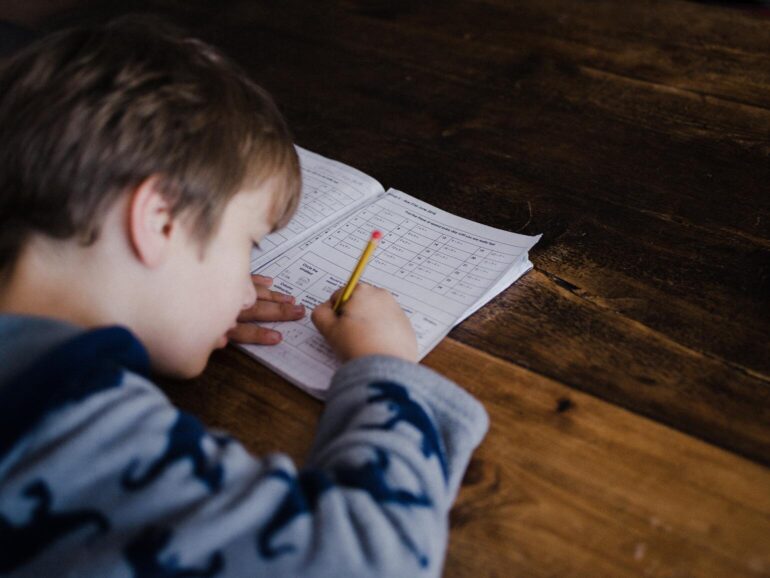Create good home environments where children can flourish, understand their strengths and view mistakes as gifts from which to learn. These are just a few of the takeaways from a recent webinar featuring a panel of child education and behavior experts. Parenting: Make the Most of Your Child’s Education, presented by Make It Better Media Group, was moderated by Susan B. Noyes, founder of Make It Better Media Group, while experts Tim Dohrer, Matthew Pietrafetta, Meryl Lipton, MD, PhD discussed how parents and teachers can best support children’s social, emotional and academic development. In recent years, prior to the Covid-19 pandemic, teachers, parents and students — from pre-school through college — reported an increase in stress, anxiety, depression and other mental health issues.
Often times, these issues go untreated, creating a real disconnect, making academic learning difficult. Parents and educators should make the healthy development of a child’s physical, emotional and social well-being the priority, then tackle their academic growth, the panel agreed.
The pandemic has only exacerbated mental health issues in children (as well as in many adults), said Dohrer, director of teacher leadership and assistant professor in the Master of Science in education program at Northwestern University. Dohrer described the pandemic and its effect on children and adults as “a terrible trauma event … continuing like a tumbling car going through the air.” With such intense levels of stress, it is difficult to make good decisions, connect with peers as well as teachers and parents “causing tremendous stress and anxiety and it is hitting kids hard,” Dohrer said.
Parents need to get in touch with who they are as parents and where their parenting style is rooted. They need to give their children opportunities to build on their strengths and work on areas of growth. Parents must identify and accept their children where they are and for who they are, and not try and make them who they thought they would be, said Lipton, a behavioral child neurologist with a background in special education and educational psychology. To raise a successful, pro-active, growth-minded learner, one who is a planner, organizer and able to execute and problem solve, Pietrafetta said children should engage in pro-actively planned “rituals and routines.”
Performing small tasks such as planning what they will wear to school, packing their school bag and making their lunches the night before school “minimizes stress and reactionary chaotic moments,” he said. But, more importantly, the tasks also help develop a sense of self and skills in the child that transfer into real-life scenarios and help develop him or her into a pro-active learner, one who self-advocates and sees mistakes as areas to grow, said Pietrafetta who is founder and CEO of Academic Approach which has locations in Chicago, Boston and New York. “The sense of self is absolutely foundational to academic success,” Pietrafetta said.
More Key Takeaways for Teachers and Parents
Teachers and parents need to discern how the child learns and meet them there. If a teacher is concerned about a student they should regularly be asking direct, open-ended questions, such as: “Do you feel safe?” “What is going on at home?” “Are you eating healthy?” “Are you sleeping well?” “What is going on in your life?” “How are you feeling?” Five basic skills to help a child grow socially and emotionally: self-awareness, self-management, social awareness, relationship building, and good decision-making skills.
“When we teach kids about those five SEL skills … kids feel better about themselves, feel better about each other, feel better about school, (they have) better relationships with peers, adults, and we see test scores go up across the board …,” Pietrafetta said, adding learning how to manage stress and anxiety “super charges learning.”
Parents should be aligned with their children’s teachers and keep teachers informed as to any changes or stressors at home. Parents need to learn how educators are helping their children at school, then reinforce those practices at home. Parents also need to ask thoughtful questions and listen mindfully to how their children respond. When a child is answering those questions such as “How are you feeling?” (as opposed to “What grade did you get on that math test?”), just let them talk and share. Parents need to be the people their children can talk to about anything, without judgement or criticism.
Lipton, founder and former director of the Rush Neurobehavioral Center, also works with parents to find their strengths which in turn helps them help their children find theirs. “Parents should help kids find their sense of self,” Lipton said. “(It takes) a tremendous understanding of their kids and themselves to see how they affect their kids, so they can put all the information together about themselves and their kids and really become the best parents that they can be.”
For more on Better:
- Side by Side Helps Latinx Students Reach Past Language and Cultural Barriers to Success
- Kellogg School Center for Nonprofit Management is There to Help People Who Help Their Communities
- Mental Health and Kids: How Parents Can Recognize Anxiety and Depression Signs in Children

Amanda Marrazzo lives in the far northwest suburb of Algonquin. She has been a news reporter for the last 25 years, 17 of those years she wrote for Chicago Tribune. She is married with two adult daughters and two dogs.

